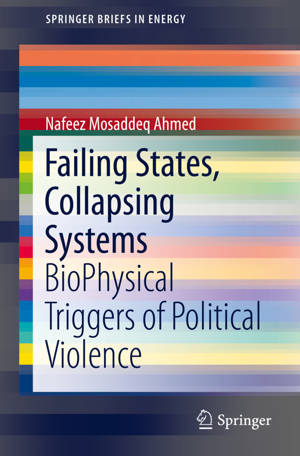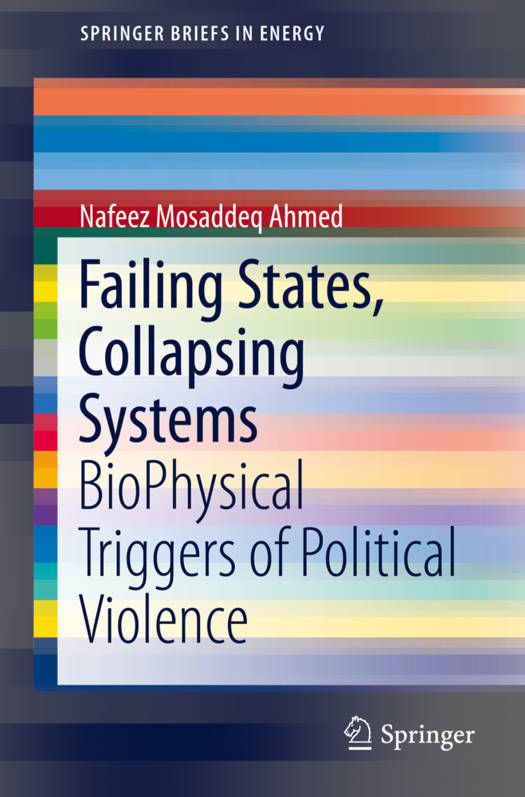
Bedankt voor het vertrouwen het afgelopen jaar! Om jou te bedanken bieden we GRATIS verzending (in België) aan op alles gedurende de hele maand januari.
- Afhalen na 1 uur in een winkel met voorraad
- Gratis thuislevering in België vanaf € 30
- Ruim aanbod met 7 miljoen producten
Bedankt voor het vertrouwen het afgelopen jaar! Om jou te bedanken bieden we GRATIS verzending (in België) aan op alles gedurende de hele maand januari.
- Afhalen na 1 uur in een winkel met voorraad
- Gratis thuislevering in België vanaf € 30
- Ruim aanbod met 7 miljoen producten
Zoeken
€ 129,95
+ 259 punten
Omschrijving
This work executes a unique transdisciplinary methodology building on the author's previous book, A User's Guide to the Crisis of Civilization: And How to Save it (Pluto, 2010), which was the first peer-reviewed study to establish a social science framework for the integrated analysis of crises across climate, energy, food, economic, terror and the police state. Since the 2008 financial crash, the world has witnessed an unprecedented outbreak of social unrest in every major continent. Beginning with the birth of the Occupy movement and the Arab Spring, the eruption of civil disorder continues to wreak havoc unpredictably from Greece to Ukraine, from China to Thailand, from Brazil to Turkey, and beyond. Yet while policymakers and media observers have raced to keep up with events, they have largely missed the biophysical triggers of this new age of unrest - the end of the age of cheap fossil fuels, and its multiplying consequences for the Earth's climate, industrial food production, andeconomic growth. This book for the first time develops an empirically-ground theoretical model of the complex interaction between biophysical processes and geopolitical crises, demonstrated through the analysis of a wide range of detailed case studies of historic, concurrent and probable state failures in the Middle East, Northwest Africa, South and Southeast Asia, Europe and North America. Geopolitical crises across these regions, Ahmed argues, are being driven by the proliferation of climate, food and economic crises which have at their root the common denominator of a fundamental and permanent disruption in the energy basis of industrial civilization. This inevitable energy transition, which will be completed well before the close of this century, entails a paradigm shift in the organization of civilization. Yet for this shift to result in a viable new way of life will require a fundamental epistemological shift recognizing humanity's embeddedness in the natural world. For this to be achieved, the stranglehold of conventional models achieved through the hegemony of establishment media reporting - dominated by fossil fuel interests - must be broken. While geopolitics cannot be simplistically reduced to the biophysical, this book shows that international relations today can only be understood by recognizing the extent to which the political is embedded in the biophysical. Although the book offers a rigorous scientific analysis, it is written in a clean, journalistic style to ensure readability and accessibility to a general audience. It will contain a large number of graphical illustrations concerning oil production data, population issues, the food price index, economic growth and debt, and other related issues to demonstrate the interconnections and correlations across key sectors.
Specificaties
Betrokkenen
- Auteur(s):
- Uitgeverij:
Inhoud
- Aantal bladzijden:
- 110
- Taal:
- Engels
- Reeks:
Eigenschappen
- Productcode (EAN):
- 9783319478142
- Verschijningsdatum:
- 16/12/2016
- Uitvoering:
- Paperback
- Formaat:
- Trade paperback (VS)
- Afmetingen:
- 156 mm x 234 mm
- Gewicht:
- 176 g

Alleen bij Standaard Boekhandel
+ 259 punten op je klantenkaart van Standaard Boekhandel
Beoordelingen
We publiceren alleen reviews die voldoen aan de voorwaarden voor reviews. Bekijk onze voorwaarden voor reviews.









